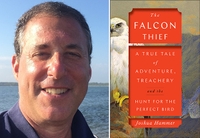The Mesopotamian Riddle: An Archaeologist, a Soldier, a Clergyman and the Race to Decipher the World’s Oldest Writing
Joshua Hammer. Simon & Schuster, $29.99 (384p) ISBN 978-1-6680-1544-5
Journalist Hammer follows up The Bad-Ass Librarians of Timbuktu with another dazzling archival adventure. By the 1850s, several scholars claimed to have decoded cuneiform, an ancient Mesopotamian script that had first been discovered several decades earlier. But, as Hammer explains, the public was skeptical, considering all claims of cuneiform “decipherment” to be “hoaxes.” William Henry Fox Talbot, a wealthy inventor (known as “the father of photography” alongside Louis Daguerre), had produced his own decipherment and, eager to prove to judgmental friends that his new pursuit wasn’t “quackery,” proposed an experiment: four different scholars who claimed to have decoded cuneiform would turn in their translations of the same text to the Royal Asiatic Society; if the translations matched, it would prove decipherment was possible. Hammer delves into the backstories of the scholars who participated alongside Talbot, detailing how each came to their all-consuming passion for decoding cuneiform: Austen Henry Layard, the son of a civil servant, who abandoned the strictures of Victorian society for the Ottoman empire, where he cavorted with rebels, spied for the British, and eventually got into archaeology; Henry Creswicke Rawlinson, the less accomplished son of a famous intellectual family who joined the East India Company to get away from home and found himself stationed in Persia by happenstance; and Edward Hincks, an Irish country parson who suffered from severe anxiety and rarely left his desk. Novelistic and immersive, this historical saga astounds. (Mar.)
Details
Reviewed on: 12/16/2024
Genre: Nonfiction
Compact Disc - 978-1-7971-9092-1
Downloadable Audio - 978-1-7971-9090-7


